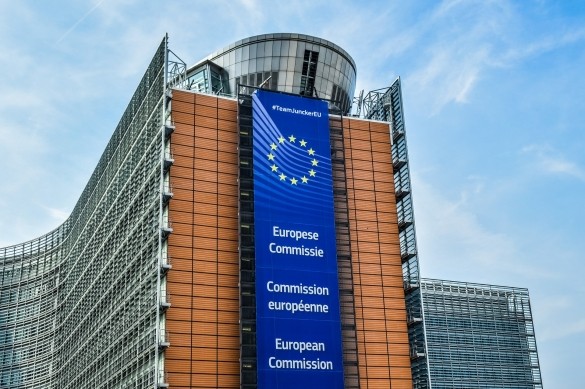The Commission tabled on Wednesday a regulation on a digital green certificate, a “temporary” measure supposed to facilitate safe free movement inside the EU during the Covid-19 pandemic. It will verify that a person has been vaccinated against Covid-19, received a negative test result or recovered from the virus infection.
According to the proposal the document will be available free of charge, in digital or paper format and will contain a QR code to ensure security and authenticity of the certificate.
The EU executive will build a gateway to ensure all certificates can be verified across the Union, and support Member States in the technical implementation of certificates.
It is for EU countries to decide which public health restrictions can be waived for travellers but will have to apply such waivers in the same way to travellers holding a green certificate, the Commission explains.
With this digital certificate, we aim to help Member States reinstate the freedom of movement in a safe, responsible and trusted manner, emphasized EC President Ursula von der Leyen during the virtual news conference after the College took the decision.
We also adopted a Communication laying down a common path to a gradual, safe and lasting re-opening and it points out what we need to do to get there – including a common framework for response measures, and measures covering everything from testing, treatments and vaccine sharing, she said.
“These both points are aiming at the re-opening, but a pre-condition for that is vaccination and vaccines,” the EC President stressed.
Specifying that digital green certificate will not be a pre-condition to free movement and it will not discriminate in any way, Commissioner for Justice, Didier Reynders, noted that the certificate is “an European approach to ensure EU citizens and their family members can travel safely and with minimum restrictions this summer”.
A common EU-approach will not only help us to gradually restore free movement within the EU and avoid fragmentation and it is also a chance to influence global standards and lead by example based on our European values like data protection, the Commissioner pointed out.
The “green pass” will include a limited set of information such as name, date of birth, dateof issuance, relevant information about vaccine, test or recovery and a unique identifier of the certificate. This data can be checked only to confirm and verify the authenticity and validity of certificates.
Concerning the use of the certificate, the Commission underlines that no personal data of the certificate holders passes through the gateway, or is retained by the verifying Member State.
The certificates will be available in the official language or languages of the issuing Member State and English.
To ensure non-discrimination, all vaccinated and non-vaccinated should benefit from a certificate when travelling in the EU. To prevent discrimination against individuals who are not vaccinated, the Commission proposes to create not only an interoperable vaccination certificate, but also Covid-19 test certificates and certificates for persons who have recovered from Covid-19.
The certificate will give same right for travellers where Member States accept proof of vaccination to waive certain public health restrictions such as testing or quarantine, they would be required to accept, under the same conditions, vaccination certificates issued under the Digital Green Certificate system.
What is specific here is that this obligation would be limited to vaccines that have received EU-wide marketing authorisation, but Member States can decide to accept other vaccines in addition.
It remains unclear how and when the traveler can be notified whether or not the country of destination accepts certain vaccine that is not authorised by EMA.
The regulation also suggests that if a Member State continues to require holders of a such certificate to quarantine or test, it must notify the Commission and all other Member States and explain the reasons for such measures.
The certificate will be valid in all EU Member States and open for Iceland, Liechtenstein, Norway as well as Switzerland. The Digital Green Certificate should be issued to EU citizens and their family members, regardless of their nationality.
The Commission plans the certificate to be ready before the summer, so this proposal should be swift if adopted by the European Parliament and the Council.
Meanwhile, EU countries must implement the trust framework and technical standards, agreed in the eHealth network, to ensure timely implementation of the certificate, their interoperability and full compliance with personal data protection.

